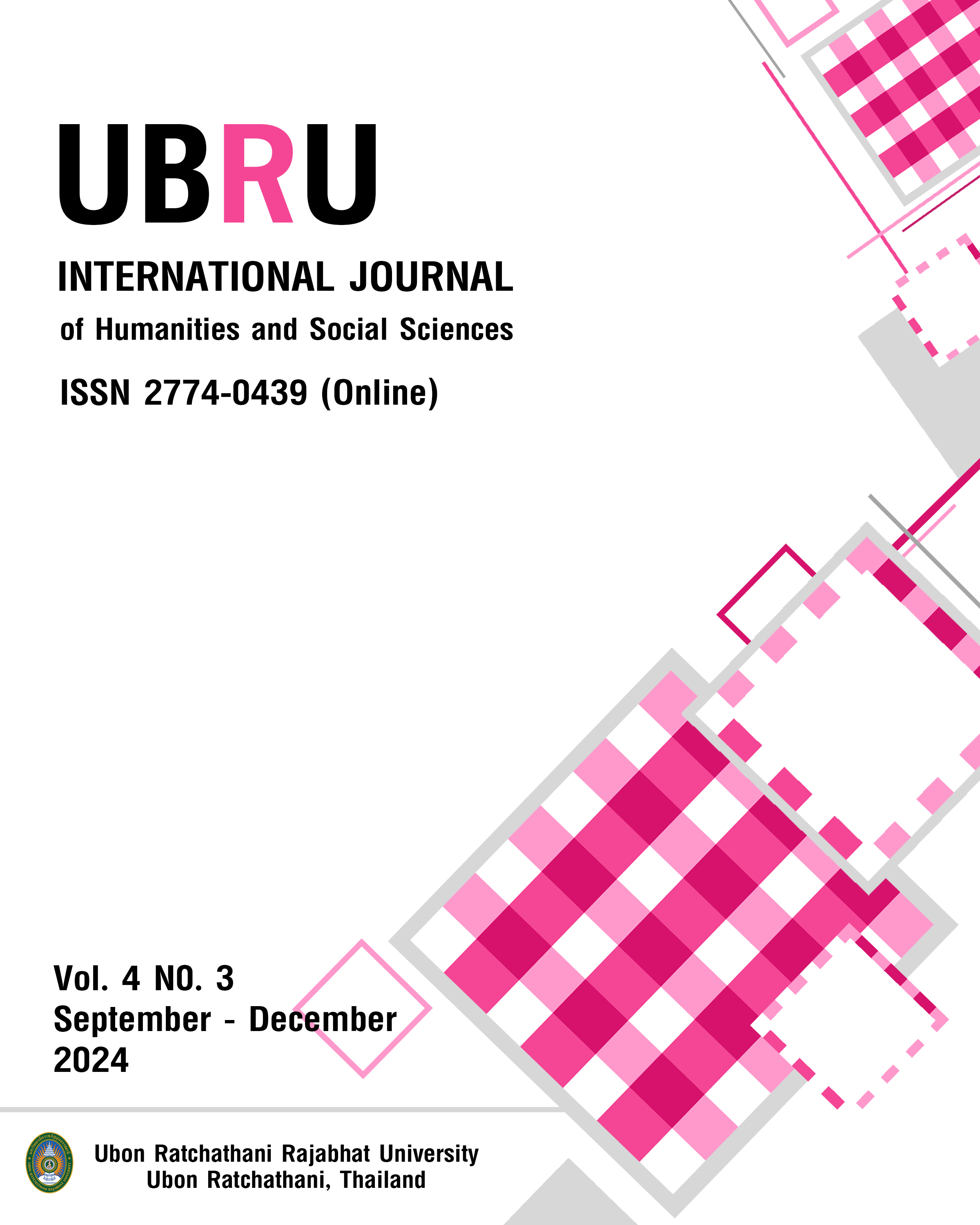Factors Impacting students learning Outcomes at a Medical College in Zhengzhou City,Henan Province, China
Main Article Content
Abstract
This study consulted domestic and foreign literature on the outcomes of what students learn in college, gotten a handle on the inquire about status at domestic and overseas on the basis of reviewing the literature, found the problems needing further research
and determined the research theme of this study. In this study, what factors affect how well students learn, including students' Cognitive Ability, self-efficacy, learning motivation, learning strategies and teachers' behaviors, are studied. Then, the impacting components
of students' learning outcomes are determined, and the data are collected using a research tool: questionnaire survey. The results showed that there were a significant relationship between IV(cognitive ability, self-efficacy, learning motivation, learning strategies, teacher behavior) and DV(learning outcomes).
Article Details
References
Baber, H. (2020). Determinants of students' perceived learning outcome and satisfaction in online learning during the pandemic of COVID19. Journal of Education and e-Learning Research, 7(3), 285-292.
Bandura, A. Self-efficacy: toward a unifying theory of behavioral change.[J]. Psychological review.1977, 84(4):139-161.
Bandura, A. (1986). Social foundations of thought and action: A social cognitive theory. In W. M. Kurtiness, & J. Gewirtz (Ed.), Handbook of Moral Behavior and Development: Volume 1: Theory (pp. 45-104). Englewood: Prentice-Hall.
Bandura, A. (1997). Self-efficacy: The exercise of control. New York, NY: Freeman.
Chen, J. L. (2005). Carrying out knowledge competition to enrich classroom teaching [J]. Teaching Monthly (Middle School Edition), 2005(10 parts): 27-28.
Clark, V.L.P. & Ivankova, N.V. (2016). Mixed methods research: A guide to thefield. Sage.
Cooper, D. & Schindler, P. (2014). Business research methods ( 12th ed.). McGraw Hill.Hair, J.F. , Ringle, C. M. , & Sarstedt, M. (2013) . Partial least squares structural equation modeling: Rigorous applications, better results and higher acceptance. Long Range Planning, 46(1-2), 1- 12.
Guo, J.X., Yang, H.M, Yang, Y. & Lei, Y.F. (2023), Strategies for Improving Learning Motivation of Clinical Medical College students,Journal of Henan Medical College, 35(1).
Jin, H. & Sun, G. Z .(2011), Investigation and Analysis of Learning strategy level of five-year vocational nursing students, J Bengbu Med Coll, October 2011, 36(10)
Jin, Y. L. (2005). Independent learning. Sichuan Education Press.
Kustyarini, K. (2020). Self-efficacy and emotional quotient in mediating active learning effect on students' learning outcome. International Journal of Instruction, 13(2), 663-676.
Lao, H. A. E., Tari, E., Nahas, I., Wijaya, H., & Darmawan, I. P. (2021). The use of e-learning in motivating students to excel towards learning outcomes. Journal of Education and Learning (EduLearn), 15(3), 458-464.
Ling, Z. . (2019). Exploration on the training mode of accounting talents in higher vocational colleges under the environment of "innovation and entrepreneurship". Journal of Jiyuan Vocational and Technical College.
Locke, S. (2016). On the idea of results-oriented education. University Education Administration, 10(5), 5.
Marantika, J. E. R. (2021). Metacognitive ability and autonomous learning strategy in improving learning outcomes. Journal of Education and Learning (EduLearn), 15(1), 88-96.
Marantika, J. E. R. (2022). The relationship between learning styles, gender and learning outcomes. Cypriot Journal of Educational Sciences, 17(1), 56-67.
Pajares, F. (1996). Self-Efficacy Beliefs in Academic Settings. Review of Educational Research, 66(4), 543-578. https://doi.org/10.3102/00346543066004543
Pham, Q. T.& Tran, T. P. (2020). The acceptance of E-learning systems and the learning outcome of students at universities in vietnam. Knowledge Management & E-Learning, 12(1), 63-84.
Posthuma, R., González-Brambila, C., Fowler, D. J., & Al-Riyami, S. (2017). A comprehensive model of management education for latin america: Learning constructs, instructional techniques, and outcomes. Management Research, 15(4), 405-424.
Schunk, D. H. (2012). Learning theories an educational perspective sixth edition. Pearson.
Seidel, T., Stürmer, K., Schäfer, S., & Jahn, G. (2015). How preservice teachers perform in teaching events regarding generic components of teaching. Zeitschrift für Entwicklungspsychologie und Pädagogische Psychologie, 47(2), 84–96. doi:10.1026/0049-8637/a000125.
Shen,Y. & Liu, Y. (2002), Bandura self-efficacy theory and its enlightenments to the teaching of learning strategies [J], Journal of education college in Xiamen 4 (1) : 2002-63
Sulistiyowati, M, N., & Sumardi. (2020). The effect of parenting patterns and learning motivation towards citizenship lesson (PPKn) learning outcomes 11th grade SMA Negeri 3 Lumajang, second term academic year of 2017-2018,IOP Conference Series.Earth and Environmental Science, 485(1).
Thomas, G. (2017). How to Do Your Research Project: A Guide for Students. Sage, London.
Wang, L. (2000), Self-efficacy Theory and Its Research Field Review, Journal of Ankang University, October 2000, 19(5).
Wang, J., Zhang, Y. Y., Wang, X. C., Yu Bo, Zhou, F. P., & Wang, J. Y. (2019). Research on Barriers to BIM Data Sharing under the Owner-Driven Mode. Journal of Engineering Management, 33, 36-41.
Wei, L. . (2019). The practical research on online and offline college english mixed teaching. China Computer & Communication.
Yan, H. Q., Sun, M. Q. & Zou, W. Y. (2013). The application of knowledge competition in the teaching of histology and embryology [J]. Basic Medical Education,2013. 15(2):107-108.
Zhou, J. Y. (2017). The change of teacher training model in the perspective of situated learning theory. Theory and Practice of Education.


